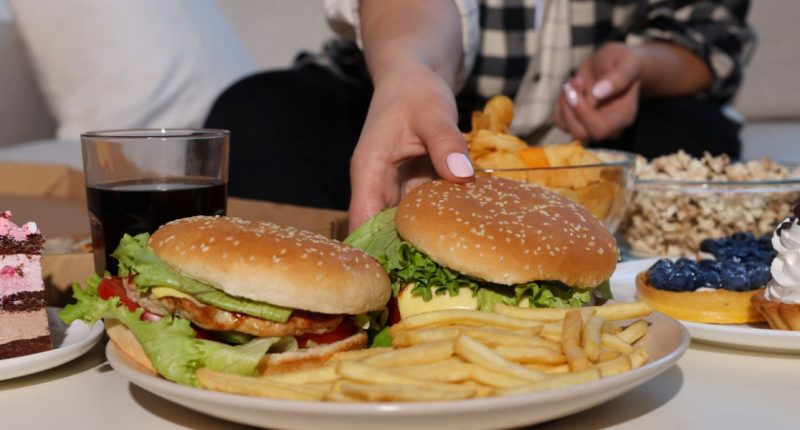- In a small crossover trial of 43 young men an ultra processed diet led to about one kilogram more fat mass than an unprocessed diet with matching calories
- The processed diet was tied to changes in reproductive hormones and higher levels of plastic related chemicals
- Researchers say food processing may affect how the body stores energy although larger and longer studies are needed
Researchers in Copenhagen gave healthy men two carefully designed diets. One used foods most people would recognise as unprocessed, such as whole grains fruit vegetables legumes meat fish eggs and dairy.
The other used ultra processed products that often include additives and are made in industrial ways, such as packaged snacks, sweetened drinks, mass produced bread and processed meats.
Both diets were matched for total calories, protein, carbohydrate, and fat, which means the researchers removed the usual explanation that people simply ate more on one plan than the other.
- Not all ultra-processed food is bad, say experts who have called for distinctions to be made
- Eating minimally processed foods helps people lose twice the amount of weight compared to ultra processed foods
- Small amounts of ultra-processed foods linked to higher risk of chronic diseases
Each participant ate one diet for a period, took a three week break, then switched to the other diet.
Some men were given a small daily calorie surplus on both plans to test whether overeating changed the pattern.
Despite the careful calorie match the men gained more fat mass on the ultra processed diet.
The average difference was about one kilogram. The researchers reported changes in blood markers too, including lower levels of testosterone and follicle stimulating hormone, and higher levels of a phthalate metabolite that comes from plastic and can disrupt hormones.
The findings suggest that calories from ultra processed foods may be handled differently by the body than calories from unprocessed meals.
- Ultra-processed foods can put older adults at greater risk of depression
- Ultra-processed foods are fuelling a rise in autism cases, study highlights
- Ultra-processed foods tied to greater risk of depression and anxiety
That could relate to factors like how quickly food is digested, how full it makes us feel, how the gut microbiome responds, or how additives and packaging chemicals interact with metabolism.
The study was small and lasted weeks, not months, and it only included men, so we should be careful not to overstate what it proves.
Even so, it lines up with other research that links high intakes of ultra processed foods to weight gain and poorer metabolic health.


